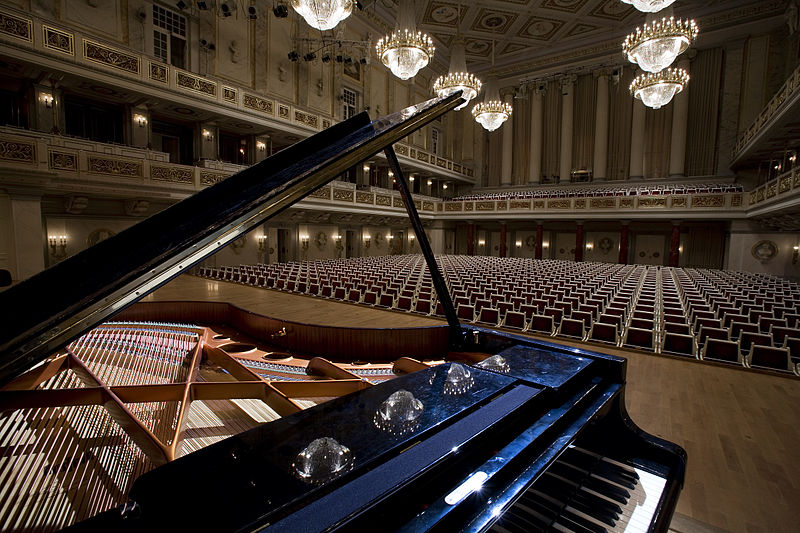Head vs. heart in the case for music
A little over a year ago, when I first went freelance, I decided that it was time to pay more attention to the place of classical music in the press. I joined Twitter; I started reading more and more articles in online journals, newspapers and blogs; and in general have managed to assemble a fairly good collection of publications, virtual and paper-based, that I keep an eye on in case the music I love most in all the world happens to get a mention.
The good news is that people write about classical music really quite a lot. A good deal of this writing takes the form of reviews, of either live performances or new recordings. There are also some important opinion pieces and discussions to be found in the pages of the Guardian, by Corymbus, and elsewhere. And thanks to music campaigners such as James Rhodes, there’s a good deal of coverage about music education and accessibility of musical resources to children.
These are all admirable, and long may they all continue. But I have noticed something about a great many pro-music pieces which strikes me as rather sad. There are precious few places now where one is allowed to say, quite simply: ‘of course music is important – that’s obvious, isn’t it?’

Berlin Konzerthaus, by Jorge Royan
We live in a society in which quantifying, explaining, researching and documenting have become the stuff of everyday life. This can yield many good, positive and practical advances. But the more we lean towards metrics and measurements as the go-to means of testing, the more we invalidate other, equally crucial kinds of evidence. Since we are also trying to cope with budget cuts and austerity measures, the need to argue persuasively is crucial. The danger, then, is that everyone is trying to stand up for something important using reasons and evidence which, whilst compelling, are not the whole story.
I’m not going to include links here to articles about how much learning an instrument can improve a child’s concentration in school, their confidence, their engagement across all subjects. I’m not going to point you to studies about musical engagement also being a superb resource for vulnerable groups such as those with severe learning difficulties or isolated seniors. I shan’t even mention broader surveys about music aiding general health and wellbeing. You can find all of these pieces, and more, from the simplest Google search.
What I want to talk about is how much I love music. I mean, really love it. Music gets me out of bed in the morning – the thought of listening to it, playing it, reading, writing and speaking about it. Making music with others is the most amazing privilege, and is also tremendous fun, whether it involves the emotional intimacy of working with a single other musician to weave something quiet and magical, or being one of a choir of hundreds and swept away in the noise and excitement. (Why do you think people sing together at football matches?) Listening to music makes me think in different ways, listen and feel intently and intensely; it makes me laugh and cry and wave my arms about like a lunatic, or close my eyes or stamp about the room. For me, writing and reading about music is the icing on the cake – learning about these extraordinary people who conjured such beautiful sounds from thin air, and understanding how they put their creations together, how what they did relates to the works of their friends, enemies and predecessors.
And you know what? You can usually tell if you meet one of us, one of these dedicated, dyed-in-the-wool music lovers, because if the music we love is happening, we will look happy about it. We might moan that it’s not the recording we like best, or carry a faint air of terror because there are hundreds of people watching us do it at the time – but we have put ourselves through that because we can’t imagine life without it. It gives us something that nothing else can.
And of course there is a place for scientific research, and of course it’s important to make arguments as rounded and full as you can in the battle for funding and support. But I remember all too clearly, when Rhodes’s Don’t Stop the Music aired on Channel Four, that the look on the kids’ faces when they got to play told you everything you needed to know about why this was A Good Thing. They looked delighted, excited, proud – they lit up. I’ve seen that same look on the faces of amateur singers and pianists after a performance of something they’d previously thought was too hard. And on the faces of music PhD students discussing their chosen subject, all animation and joy at how much they love their topic. And I’ve seen it on my own face too, in the mirror, or on photos after the event, when the thing that’s been centre stage is the music I love. Of course music is important. Of course it should be supported, funded, encouraged. That’s obvious – isn’t it?


Yes, it is obvious. Thanks for writing this.
What’s not often made clear on the ‘music-will-help-your-child-to-learn-and-keep-me-in-a-job’ articles is that this only works over a long time and with the complete and voluntary engagement of the participant, neither of which are possible without the joy you describe.
I quite agree Alan – many thanks for your comment!